Leadership
The Central Society for the Philosophy of Creativity (formerly Central Division) is now affiliated with the American Institute of Philosophical and Cultural Thought. The Fellows of the AIPCT constitute the leaders and membership of the Central SPC. AIPCT hosts the Spring Conference of the Central SPC as well as the FPC’s Hahn Lectures and Dissertation Fellowship.
About the Spring Creativity Conferences
In the course of its deliberations some years ago, the Board of the Foundation for the Philosophy of Creativity (FPC) decided that its affiliate Society in the Central Division of the American Philosophical Association could have a greater impact on scholarship and new work on the philosophy of creativity by expanding its programming and basing the spring meeting at the AIPCT. The AIPCT and Southern Illinois University has already begun hosting the Hahn Lectures and they were drawing more attention than the programming at the APA Central meeting. Thus, beginning in 2019, AIPCT began hosting a Spring Creativity Conference. The second creativity conference was held just before COVID closed everything down in 2020, and the 2021 meeting was entirely on-line. Now, for our fourth conference, we are able to return to some in-person participation, but COVID has helped us understand that our reach is greater on-line, and henceforth we will be doing our conferences and our Hahn Lectures in a hybrid format. You can view past conferences on our YouTube channel here. Past Hahn Lectures are here.
Sixth Annual Spring Creativity Conference: “Language, Mind, and Life: Working with the Thought of Susanne Langer”
The Schedule
The FPC and its Central Division Society for the Philosophy of Creativity are pleased to announce the sixth Spring Creativity Conference. This year the conference is held in conjunction with the Second International Conference on the Thought of Susanne Langer: Langer, Creativity, and American Thought. The conference will be on Monday afternoon, June 24, beginning at 2 PM. The schedule, abstracts of the lectures, and speaker profiles are below. The lectures are free and open to the public and one may attend on-line by requestiong a zoom link at this address: personalist61@gmail.com.
Monday, June 24
Noon-2:00 pre-conference gathering (lite refreshments available)
Creativity Conference (2:00-6:30) Sponsored by the Foundation for the Philosophy of Creativity
Welcome: Joddy Murray, Dean of the College of Liberal Arts, Southern Illinois University Carbondale
2:00-2:50
Born Into Feeling: The Development of Subjectivity
Margaret M. Browning, Independent Scholar
2:55-3:45
Mimetic Embodiment and Gesture: Unpacking Representational Semblance with Susan Langer
Matthew Ingram, Dakota State University
Creativity Keynote (4:00-5:30)
4:00-5:30
Susanne Langer’s Act Concept and Systems Biology: An Essay in the Philosophy of Science
Donald Dryden, Duke University
Reception 5:30-6:30
The Lectures
Born into Feeling: The Development of Subjectivity
Margaret M. Browning, Independent Scholar
This paper argues that combining the thinking of philosopher Susanne Langer and neuroscientist Jaak Panksepp promotes an understanding of the development of subjectivity as the evolution of a life of feeling. Langer’s philosophy of animalian mind posits consciousness as the capacity to feel, and Panksepp’s neuroscientific model of what he refers to as the mammalian BrainMind with its primary emotional organization includes an ongoing concomitant affectivity, i.e., consciousness or feeling. Describing at some length Panksepp’s model of BrainMind development from the innate primary organization of emotional systems through secondary emotional learning and on to tertiary cognitive functioning, the paper traces the development of the child’s life of feeling. The early consciousness of the human child is non-reflective and difficult for us to understand as symbolically-reflective conscious agents, but it is nevertheless critical in mediating her early emotional learning (secondary functioning in Panksepp’s model). With the advent of tertiary brain development and the acquisition of symbolic functioning, non-reflective consciousness becomes increasingly reflective. Langer understands this symbolic capacity, unique to the human species, as the capacity to project our animalian feeling into social forms, e.g., human language. This is the basis of the cultural society human children are born into with their capacity to feel, a profoundly intersubjective social environment that children become participating members of with the maturation of their symbolic, cognitive functioning. This membership enables a wide-open expansion of their subjectivity and the opportunity to begin to shape their own lives of feeling.
Mimetic Embodiment and Gesture: Unpacking Representational Semblance with Susanne Langer
Matthew Ingram, Dakota State University
In the field of gesture studies, there are three prevalent approaches to studying mimesis and the depictive practices and aspects of gesture: depicting by gesture (Streeck, 2009), techniques of depiction (Müller, 2014), and depiction as communication (Clark, 2016). Each of these, in their own way, draws off Peircean notions of semiosis (icon, index, and symbol), bolstered by art philosophies, psychologies, and sociologists of scholars like Nelson Goodman, Ernst Gombrich, Rudolf Arnheim, and Erving Goffman to tease out meanings of and richness in gestural artistic-like practices in everyday social interaction. What each of these studies illustrates is a need for a broader aesthetic theory and take on gestural meaning that forefronts artistic symbolism as its base approach. I argue, in this article, that Langer’s notion of “semblance” (and her broader philosophies, especially her notion of “abstraction”) can be appropriately fitted to sharpen what we mean by mimetic performance in gestural studies. Its application can be seen in an interactional exploration of episodes from the highly popular live improvisational comedy show Whose Line is it Anyway? Specifically, I focus on a favored skit, “Let’s Make a Date,” where the improvisational actors are given unique and quirky characteristics, actions, and scenes to act out as if they were on a dating show. Langer’s (1953) notion of semblance and interlocking concepts (image, illusion, virtuality, and abstraction) help us make sense of embodied meanings that are forged through improvisational activities, as the improvisational crew pretends to be a gladiator shooting an arrow through the audience as the audience voluntarily falls in their seats playing a role or an actor pretends to fight against the pull of gravity of a black hole. Keeping with the microanalytic or interactional linguistic approach to studying gestures, I explore transcribed interactional snippets that illustrate the productivity and potentiality of a Langarian approach to gesture and collaborative semblance-making practices involved in artistic gesturality. Langer’s work has transformational potential to provide a semiotic theory of gesture where artistic idea creation is forefront and center from the very start of thinking about gestural mimesis.
Susanne Langer’s Act Concept and Contemporary Systems Biology: An Essay in the Philosophy of Science
Donald Dryden, Duke University
In 2027, only three years from now, those of us who know of the work’s existence and who admire its achievement will celebrate the 60th anniversary of the publication of the first volume of Mind: An Essay on Human Feeling, which marked the unveiling of the first three parts of the project that would eventually occupy the second half of Susanne Langer’s career as a professional philosopher, and would still remain unfinished at the time of her death in 1985. From the witness of her own testimony following the appearance of the first volume of Mind in 1967, we can say with certainty that Langer’s ambition was to construct “a conceptual framework for the empirical study of mind”—one that would “break through” the limitations of “current forms of thought” in psychology and the biological sciences by providing basic concepts to connect a number of relevant disciplines, “from biochemistry to neuropsychology, in one scientific system,” which would “naturally result in a theory of the human mind.” With the hindsight of nearly six decades since its first appearance in printed form, what can we say today about the fate of Susanne Langer’s vision for the biological sciences? What we cannot say, sadly, is that her writings have had any direct influence on the course of their development. As I hope to show, however, exciting things have been happening in some areas of the biological sciences since the turn of the 21st century—especially in what has become known as systems biology, where there has been a widespread recognition of the power of computational modeling to represent and explore the behavior of complex networks at the cellular and subcellular level—as well as in the philosophy of science which, when taken together, hold the promise of incorporating into the fabric of biological theory some of the defining characteristics of life and mind that Langer came to know in considerable detail through her long study of the arts and in turn sought to bring into the foreground of scientific understanding with her introduction of the act-conceptual framework.
The Lecturers

Donald Dryden is a Visiting Scholar in the Department of Philosophy at Duke University. His research focuses on the history and philosophy of psychology and the biological sciences, as well as on the life and work of Susanne Langer, whose work he first encountered in 1965, when a professor in one of his German courses told his students that, if he could choose only one book to take with him to a desert island, it would be Philosophy in a New Key. After reading all of Langer’s published works, he eagerly awaited the publication of her magnum opus on the evolution of the human mind that she had promised in Philosophical Sketches in 1962. The first volume of Mind: An Essay on Human Feeling, appeared in 1967; and Donald reports that he has “carried a torch for Susanne Langer ever since.” Donald met Langer in the summer of 1976, when she extended her hospitality to him for an afternoon at her home in Old Lyme, Connecticut, that included lunch and a shared canoe ride on one of Langer’s favorite nearby lakes. When Donald began a doctoral program in philosophy at Duke University in 1994, he established a relationship with Langer’s son Leonard, who supported his work in inventorying the papers she had left to the Houghton Library at Harvard University after her death in 1985, and connected Donald with a number of people who had known his mother, which enabled Donald to carry out extensive biographical research. He has since published a number of articles on Langer’s work. Since earning his Ph.D. in philosophy from Duke in 2006, with a dissertation on “the new mechanism” in the philosophy of science, Donald has continued his research on Langer’s work, most recently concentrating on interpreting the project of Mind from the perspective of the new mechanism in the philosophy of science and the organicist tradition in the biological sciences. And the torch continues to burn brightly.

Margaret M. Browning After receiving her PhD in Psychology later in life from The University of Chicago She continued her developmental research on prematurely-born infants and published two articles with her psychology and pediatric colleagues. After several years of adjunct teaching and no fulltime hire, she took a job as a health services researcher at a Department of Veterans Affairs hospital where she was one of several authors on numerous articles. In her retirement she is focusing on her own area of interest in neuropsychoanalytic, developmental, philosophical psychology and has authored singly five articles crossing these domains. Her last article was published in 2019 in The Psychoanalytic Quarterly (“Our Symbolic Minds: What are they Really?”).

Matthew Ingram is Assistant Professor of Communication at Dakota State University. Our ability to animate and reanimate stories and characters, whether real or imagined, is a fundamental part of human sociality. This interactional practice, which I explore in my research, has implications for various fields that explore embodiment, including gesture studies, interactional linguistics, and rhetorical studies, to name a few. How do we use our bodily imagination to externalize subjective ideas and bring them into the public sphere of social interaction? How do we work with the creative products of imaginative mental images made visible and audible through gestures and talk? What can different contexts, where innovative ideas are manifested and shared, reveal about transforming our perception of the world? As an Assistant Professor of Communication, I explore these questions of mimesis along diverse and interdisciplinary lines. My research spans social contexts such as conflict mediation, political rallies, and dance rehearsals. I aim to understand the social mechanisms behind mimetic acts to better comprehend human thinking and the rhetorical impact of these mimetic ideas on audiences. My current focus is on mimetic artistry, particularly how bodily performances in dance rehearsals and improvisation reveal how interdependent our actions are on those of others in the co-creation and maintenance of meaning.
Past Programs
Fifth Annual Spring Creativity Conference: “The Soul and Its Body,” March 16, 2023
The Soul and Its Body
The Foundation for the Philosophy of Creativity and the AIPCT are pleased to announce the 2023 Spring Creativity Conference, March 16, 2023, 11:00 AM until 8:00 PM. In-person attendance is by invitation only, for health reasons, but anyone can join on-line by sending a request for the Zoom link.
The videos for this year’s conference are here.
Our conference this year centers around the book by Lenn Goodman and Gregory Caramenico, The Soul and Its Body (University of Chicago Press, 2013), especially chapter six, on Creativity. In the ten years since the book appeared, advances have been made and academic opinions have shifted in directions favorable to this work. Placing the “hard problem of consciousness in a historically informed context, both philosophical and theological, this book argues for an emergent person who creates “the world” in a certain sense. The speakers include the authors of the book, who will bring the ideas into the present, and also respond to two friendly critics.
Schedule
(All times Central Daylight Time US):
11:00 Randall Auxier, “The Hard Problem of the Emergent Person.” The video is here.
2:00 D. Gregory Caramenico, “The Self in Control: Emerging Neurotechnology and the Extended Person.” The video is here.
4:00 Alan Mittleman, “Coming to Mind: An Appreciation and Critique.” The video is here.
6:00 Lenn Goodman, “Responses.” The video is here.
Speakers
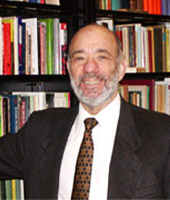
Lenn E. Goodman is Professor of Philosophy and Andrew W. Mellon Professor in the Humanities at Vanderbilt University. He was honored with the Baumgardt Prize of the American Philosophical Association, the Sutherland Prize, and with a volume in Brill Library of Contemporary Jewish Philosophy. Goodman’s book length contributions in Jewish philosophy include The Holy One of Israel (2019), Judaism: A Contemporary Philosophical Investigation (2017), Love Thy Neighbor as Thyself, his Gifford Lectures (2008), Judaism, Human Rights & Human Values (1998), God of Abraham (1996), Judaism, Human Rights & Human Values (1998), On Justice (2008). He has also written extensively on Islamic philosophy, including work on Razi, Farabi, Avicenna, Ghazali, Ibn Tufayl, and Ibn Khaldun. His books in general philosophy include In Defense of Truth, Coming to Mind: The Soul and its Body, Religious Pluralism and Values in the Public Sphere, and Creation and Evolution. Goodman has lectured widely, in Oxford, Jerusalem, Taiwan, and in many venues in the United States and Canada. His new translation/commentary of Maimonides’ Guide to the Perplexed will appear in 2024. He is now at work on a book titled God and Truth.
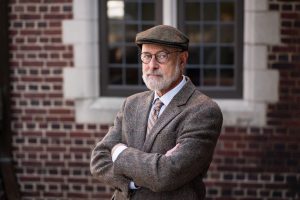
Alan Mittleman holds the Aaron Rabinowitz and Simon H. Rifkind Chair in Jewish Philosophy at the Jewish Theological Seminary in New York City. Prof. Mittleman is the author of eight books. His most recent is Does Judaism Condone Violence? Holiness and Ethics in the Jewish Tradition (Princeton 2018), which won the National Jewish Book Award for Modern Jewish Thought and Experience in 2018. Other recent works include Human Nature and Jewish Thought: Judaism’s Case for Why Persons Matter (Princeton, 2015), A Short History of Jewish Ethics (Wiley-Blackwell, 2012), and Hope in a Democratic Age (Oxford, 2009). He has edited five books, most recently Holiness in Jewish Thought (Oxford, 2018) and has co-edited the forthcoming Jewish Virtue Ethics (SUNY Press, 2023). His new book Absurdity and Meaning in Contemporary Philosophy and Jewish Thought is forthcoming in 2023 with Cambridge University Press. Prof. Mittleman is the recipient of an Alexander von Humboldt Foundation Research Fellowship and served as Guest Research Professor at the University of Cologne (1994 and 1996). He has lectured widely in Germany. Mittleman received a Harry Starr Fellowship in Modern Jewish History from Harvard University’s Center for Jewish Studies (1997) and served as Visiting Professor in the Department of Religion at Princeton University (2007). He has received grants from the Herzl Institute and the Yale Center for Faith and Culture, both sponsored by the John Templeton Foundation and from the Jack Miller Center. In 2020-21, he was a Visiting Fellow at the James Madison Program in American Ideals and Institutions at Princeton University.
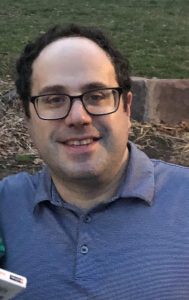
Greg Caramenico is an attorney and an independent scholar of intellectual and economic history, the philosophy of mind, neurolaw, and legal history. Greg holds a master’s degree from Vanderbilt University, where he initially trained as an intellectual and economic historian of Renaissance Italy, and studied long-durée studied classical Jewish and Islamic philosophy (and subsequently, Iranian history). Greg received a JD from the Benjamin N. Cardozo School of Law. Prior to law school, Greg was a research assistant in behavioral biology and subsequently a full-time researcher for the Law and Neuroscience Project working group at Vanderbilt University Law School focused on cognitive neuroscience approaches to law and policy-making. Professionally, Greg is an asset management associate at Fried, Frank, Shriver, Harris & Jacobson LLP, and he previously practiced law at Debevoise & Plimpton LLP. His practice focuses primarily on private fund formation. Greg is currently writing a reappraisal of Renaissance humanist polemics regarding the legal profession and legal education.
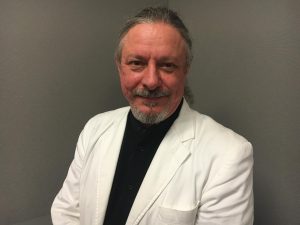
Randall Auxier was recently elected William and Galia Minor Professor of Creative Communication (2023-26), School of Communication Studies, Southern Illinois University Carbondale, where he is also Professor of Philosophy. He has authored, co-authored, edited or co-edited over 20 books and has published many articles and book chapters. Auxier is co-founder (with John R. Shook) of the AIPCT, the journal The Pluralist, and the SUNY Series in American Philosophical and Cultural Thought. He is Deputy Chief Editor and a founding contributor to Eidos: A Journal of the Philosophy of Culture. Auxier has lectured around the US and the world, holding vising appointments at the University of Warsaw (2016-2-19), SWPS University of the Humanities and Social Sciences (2021-22) and the University of Wrocław (2022).
Fourth Annual Spring Creativity Conference: April 24, 2022
AIPCTadministratorApril 1, 2022News and Events
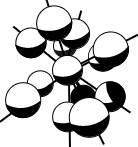
The AIPCT and the Foundation for the Philosophy of Creativity are pleased to announce the fourth annual Spring Creativity Conference. The conference will be hybrid this year, with a limited number of socially-distanced in-person guests (by invitation), and also being sent out by Zoom to anyone who wants to attend.
For a Zoom link, please send RSVP to: personalist61@gmail.com
The Schedule (all times Central USA):
12:00-1:30 Keynote Address: “The Paradoxical Burden of Creativity and Originality,” Robert Innis, University of Massachusetts, Lowell (delivered virtually) The video is here.
1:45-3:15 “The Aesthetic Consequence of Experience in Classical Pragmatism,” Paniel Reyes Cárdenas, People’s Autonomous University of Puebla State (Puebla, Mexico) The video is here.
3:30-5:00 “Siblings in Spirit? – A Comparative Perspective on the Political Theories of Hannah Arendt and John Dewey,” Julian Klar, University of Heidelberg. The video is here.
5:00-6:00 Pizza Courtesy of the Foundation for the Philosophy of Creativity
6:00- 7:30 “For the Time-Being: Creative Normativity and Placemaking,” Leslie Micheal Murray, Southern Illinois University Carbondale. The video is here.
The Speakers
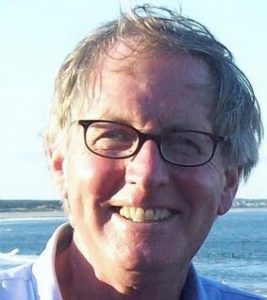
Robert E. Innis is Professor Emeritus of Philosophy at the University of Massachusetts Lowell. During the period 2015-2019 he was Obel Foundation Visiting Professor at the Niels Bohr Center for Cultural Psychology at Aalborg University. He has been Fulbright Professor of Philosophy at the University of Copenhagen (1990-1991), visiting Professor of Semiotics at Tartu University, and Visiting Professor of Excellence at the Catholic University of São Paulo. His books include Karl Bühler: Semiotic Foundations of Language Theory, Consciousness and the Play of Signs, Pragmatism and the Forms of Sense, Susanne Langer in Focus: The Symbolic Mind, Between Philosophy and Cultural Psychology, and Dimensions of Aesthetic Encounters.
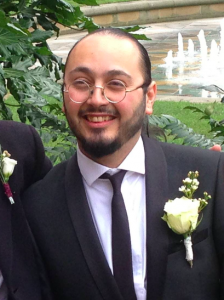
Paniel Reyes Cárdenas was awarded his MPhil and PhD in Philosophy by the University of Sheffield, UK. His PhD Thesis, treated scholastic realism in Peirce’s pragmatist philosophy, supervised by Christopher Hookway and Steve Makin. Apart from pragmatism, he has published papers on the philosophy of mathematics, metaphysics, medieval philosophy, philosophy of religion, and German Idealism. Professor Reyes Cárdenas is also a founder of the Peirce Latin-American Society. After a spell as postdoctoral fellow in the University of Nottingham, he became lecturer and researcher at the People’s Autonomous University of Puebla State (Puebla, Mexico). He is part of the Mexican Council of Science and Technology, awarded SNI 1, and is the author of Scholastic Realism (Peter Lang, 2018) and Ideas in Development (Cambridge Scholars Press, 2018). Professor Reyes Cárdenas is visiting presidential fellow at the Oblate School of Theology in San Antonio from 2021-2022, and Resident Fellow at AIPCT for April, 2022.
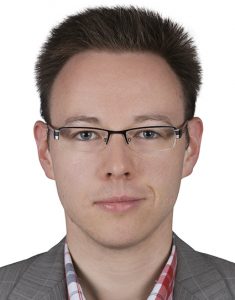
Julian Tobias Klar obtained his B.A. and M.A. two-major-degrees in Political Science and Philosophy from the University of Heidelberg in Germany. His M.A. dealt with Immanuel Kant and Hans Kelsen, employing their theories of international law on the nonproliferation regime of nuclear weapons. His main interest currently lies in modern and contemporary political theories, especially in the political theories of Hannah Arendt and John Dewey. He started the research for his Ph.D. in April 2020, aiming at a thorough comparison of the political theories of Hannah Arendt and John Dewey, also probing their theories’ reflective potential for today’s discourse in the theory of democracy. He is currently a visiting scholar at SIUC for an evaluation of the John Dewey Papers and Dewey’s private library and will be continuing his investigation at Bard College (NY), reviewing Hannah Arendt’s private library.
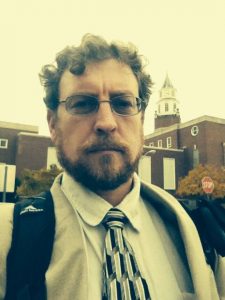
Leslie M. Murray is a Ph.D. student in Philosophy at Southern Illinois University Carbondale. His M.A. in philosophy was completed in spring 2018 with a thesis on the philosophical ideas of Gifford Pinchot, specifically on conservation, democracy, and ecological flourishing. He was a recipient of the prestigious McNair Fellowship as an undergraduate at SIUC with a thesis on the philosophical principles of evolution, general relativity, and time. He has presented papers at several national and international meetings and has published a translation (with Randall Auxier) of Bruno Latour’s “What Will You Gain If You Save Your Soul but Lose the Earth?” in Philosophy without Borders. He is preparing a dissertation on the ontology of culture on the topic of place-making, time, normativity, and belonging. He was a resident fellow of AIPCT from October to March, 2021-2022. His contribution to the creativity conference is also his residency lecture.
The Lectures
Robert E. Innis, The Paradoxical Burden of Creativity and Originality The video is here.
Paniel Reyes Cárdenas, The Aesthetic consequence of Experience in Classical Pragmatism The video is here.
Julian Tobias Klar, Siblings in Spirit? – A Comparative Perspective on the Political Theories of Hannah Arendt and John Dewey The video is here.
Leslie M. Murray, For the Time-Being: Creative Normativity and Placemaking The video is here.
Third Annual Spring Creativity Conference: Creativity and Culture, April 16-17, 2021
AIPCTadministratorApril 4, 2021News and Events

The Foundation for the Philosophy of Creativity and the AIPCT are pleased to announce our third annual Spring Creativity Conference. Due to the pandemic, the conference will be held on-line. This year’s theme is Creativity and Culture, organized by AIPCT Fellow Eli Kramer. This is also part of the on-going collaboration between Southern Illinois University Carbondale and the Faculty of Philosophy, University of Warsaw, and the conference is co-sponsored by Eidos: A Journal of the Philosophy of Culture, and by the University of Wrocław. This year’s conference has been built upon contributions to the forthcoming volume, tentatively entitled Philosophy of Culture as Theory, Method, and Way of Life, eds. Eli Kramer, Przemysław Bursztyka, Marcin Rychter, and Randall Auxier.
To attend, request a Zoom link at: personalist61@gmail.com
Program
(All times Central Daylight Time, US)
Friday, April 16
12:30 PM Zofia Rosińska, University of Warsaw: “Dialectics of Creativity According to Władysław Stróżewski.” The lecture is here.
1:30 PM Przemysław Bursztyka, University of Warsaw: “Outline of an Apophatic Philosophy of Culture.” The lecture is here.
3:00 PM Rudolf Makkreel, Emory University: “How the Arts Reorient Experience and Recontextualize the World.” The lecture is here.
Saturday, April 17
12:00 PM Eli Kramer, University of Wrocław: “The Creative Virtues of Philosophy of Culture.” The lecture is here.
1:30 PM Laura Mueller, West Texas A&M University: “Modern Socratic Dialogue and Resilient Democracy: Creating the Clearing for an American Bildung.” The lecture is here.
3:00 PM Robert C. Neville, Boston University: “Culture and Philosophy.” The lecture is here.
The Presenters
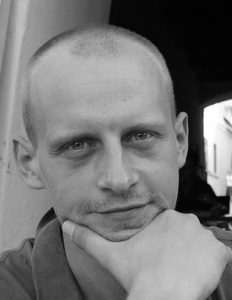
Przemysław Bursztyka is Assistant Professor at the Institute of Philosophy, University of Warsaw, and chair of the Department of Philosophy of Culture. He is a past resident fellow of the AIPCT. His interests include philosophy of culture (including cultural studies) philosophical psychology, philosophy of human nature (especially apophatic anthropology) and philosophy of subjectivity, phenomenology, psychoanalysis, existentialism (Kierkegaard, Nietzsche), hermeneutics (Gadamer, Ricoeur) and aesthetics (especially phenomenological). Currently he is working on the aesthetic and ethical (broadly understood) aspects of the work of imagination. Co-editor and co-author of three books: Schulz. Między mitem a filozofią (Gdańsk 2014), Freud i nowoczesność (Kraków 2007 and 2008), Miłość i samotność. Wokół myśli Sørena Kierkegaarda (Warszawa 2007). He is the author of numerous articles and co-founder and editor-in-chief of the philosophical journal Eidos. A Journal for Philosophy of Culture.
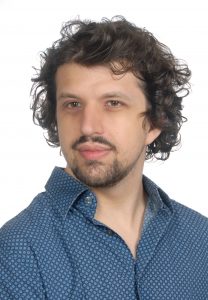
Eli Kramer is an assistant professor at the Department of Ethics of the Institute of Philosophy, University Wrocław. He is principal organizer of this program and a Fellow of AIPCT. His work traverses philosophy as a way of life (PWL) and metaphilosophy, philosophy of culture, American and European idealism, classical American Philosophy, and process philosophy. He co-edits a new book series with Brill, “Philosophy as a Way of Life: Text and Studies,” which organizes new translations, as well as putting out new studies. His first single authored monograph is on the nature and role of the associated philosophical life (as distinct from philosophy as a discipline), entitled The Principles of Philosophical Community: An Intercultural Constellation to Guide the Associated Philosophical Life (Brill, Forthcoming). His work has appeared in journals such as Philosophy and Theory in Higher Education, Eidos: A Journal for Philosophy of Culture, Syndicate Philosophy, the Philosophy of Education Yearbook, Dewey Studies, and The Journal of School and Society. He has also co-edited and contributed to collections such as Rorty and Beyond (Lexington Books, 201) and Contemporary Philosophical Proposals for the University: Toward a Philosophy of Higher Education (Palgrave Macmillan, 2018).
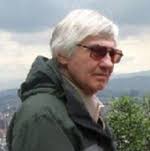
Rudolf Makkreel is Charles Howard Candler Professor Emeritus of Philosophy at Emory University. He is author of Dilthey, Philosopher of the Human Studies (1975, Pulitzer Prize and National Book Award nominee), Imagination and Interpretation in Kant (1990), and Orientation and Judgment in Hermeneutics (2015). He co-edited and co-translated Selected Works of Wilhelm Dilthey (5 volumes, 1985-2010), and was editor of the Journal of the History of Philosophy from 1983-98. Makkreel’s work is concentrated on hermeneutics and aesthetics by developing ideas from the German philosophers Wilhelm Dilthey and Immanuel Kant. He has focused on the roles of the imagination, judgment, and interpretation within Kant’s critical system. The implications of Kant’s conception of reflective judgment for hermeneutics and for the theory of the human sciences are also central to Makkreel’s writings. A new book Kant’s Worldview: How Judgment Shapes Human Comprehension will appear with Northwestern University Press later this year.
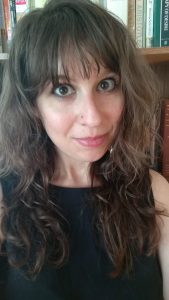
Laura J. Mueller is Assistant Professor of Philosophy at West Texas A&M University. She taught previously at Gustavus Adolphus College and Luther College. She teaches courses in ethics, social and political philosophy, history of philosophy, American Philosophy, feminism, and philosophy of culture. Her past research focused primarily on Kant’s ideas about sensus communis, emphasizing the role of pre-cognitive aesthetics in ethics and epistemology. Recent projects include personalism and animals, and Kant and mental illness. She is also interested in matriarchal theory and philosophy of symbolism. Laura serves on the Editorial Board of Eidos: A Journal of the Philosophy of Culture and is lead editor of the forthcoming issue of dedicated to the study of physical culture.
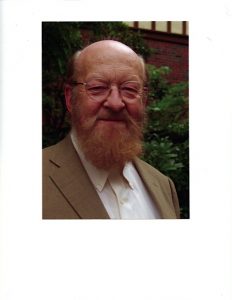
Robert Cummings Neville is professor emeritus of philosophy, religion, and theology at Boston University where he is also dean emeritus of the School of Theology and of Marsh Chapel. He is past president of the Charles S. Peirce Society, the American Academy of Religion, the Metaphysical Society of America, the International Society for Chinese Philosophy, and the Institute for American Religious and Philosophical Thought. He is the author of over 300 papers and nearly 30 books, notably the Axiology of Thinking trilogy Reconstruction of Thinking (1981), Recovery of the Measure (1989), and Normative Cultures (1995). His recent Philosophical Theology trilogy consists of Ultimates (2013), Existence (2014), and Religion (2015). His most recent book is Defining Religion: Essays in Philosophical Theology (2018). An ordained United Methodist Elder, he has published four books of sermons. His website is robertcummingsneville.com.
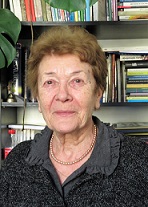
Zofia Rosińska, is Professor Emerita, Institute of Philosophy at the University of Warsaw, where for over 25 years she held the position of the chair of the Department of Philosophy of Culture. She engages with the problems that arise at the meeting point between Psychology and Philosophy. She introduced psychoanalysis to the Polish philosophical scene as a method of reflecting on culture and the human person. Recently she works on the possibility of dialogue between philosophy and psychiatry. She is the author of many books including: Freud (Warszawa, 1993), Jung (Warszawa,1982), Psychoanalityczne myślenie o sztuce (Psychoanalytic Thinking About Art, Warszawa, 1985), Ruch myśli (Movement of Thought, Warszawa 2012). She is also editor or co-editor of many other books including: Psyhoterapia i kutura (Psychotherapy and Culture, Warszawa 1997), Pamięć w filozofii XX wieku (Memory in the XXth century Philosophy, Warszawa 2001) and Co to jest filozofia kultury? (What is Philosophy of Culture?, Warszawa 2006). She is also the chair of the Advisory Board of Eidos. A Journal for Philosophy of Culture.
Second Annual Spring Creativity Conference: The Cultural Power of Personal Objects

The Cultural Power of Personal Objects
All of the presentations are now available here.
The AIPCT is pleased to announce the annual Spring Conference on Creativity. The theme of this year’s conference is an exploration of how objects we don’t normally think of as “persons” take on personality, or may even become persons, for a group or an individual. How does this happen and what does it mean? The presenters come from the fields of education, Asian studies, Native American studies, philosophy, and religious studies; the topics, methods, and subjects of psychology, musicology, sociology, and anthropology will also be incorporated into the conference.
The conference is sponsored by the Foundation for the Philosophy of Creativity, and the Central Society for the Philosophy of Creativity. Free and open to the public. Light refreshments, soft drinks, beer and wine (not very good beer or wine, you understand) are provided, but members of the public are free to bring their own refreshments, to share or for themselves, and drinks (alcoholic or non). Doors open 30 minutes before the first event each day. Attendees are welcome to to remain after the last event to socialize and continue discussion.
Here is the schedule of presentations:
Friday, March 6th
7 PM “Cherokee Non-Human Persons in Dual Realms,” Carrie McLachlan, Western Carolina University. The lecture is here.
Saturday, March 7th
11:00 AM “Convergence and Divergence of Spirit: Tsukumogami and the Personality of Objects” Kevin Taylor, University of Memphis. The lecture is here.
12:30-2:00 PM Lunch on your own
2:00 PM “A Personalized Cultural World: A Cassireran Phenomenology of Personalized Intuition” Jared Kemling, Rend Lake College. The lecture is here.
4:00 PM “The Comfort of Things: Personal Objects, Possession, Dwelling, and the Desire to Be God in Sartre, and Levinas” James McLachlan, Western Carolina University. The lecture is here.
6:00 PM Pat’s Bar-b-que catered (vegetarian options available)
7:00 PM “How My Piano Uses Gendlin’s Focusing Method” Ralph Ellis, Clark Atlanta University. The lecture is here.
The Presenters

Ralph D. Ellis received his PhD at Duquesne University and a postdoctoral M.S. at Georgia State University. He has taught at Clark Atlanta University since 1985, and is interested in integrating the social sciences with the philosophy of mind. His various books in this area are listed at the Ralph D. Ellis page of Amazon.com. Ellis is also a jazz pianist and saxophonist. Many of his jazz recordings can be found easily online by Googling the his performing name, Raiff Ellis. Ellis is now trying to integrate enactive consciousness theory with moral and social philosophy, with relevance to our current era of internet disinformation and “alternative facts.” The new book, The Moral Psychology of Internal Conflict (Cambridge 2018) is an attempted beginning in that direction.
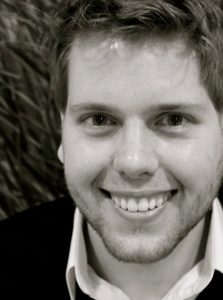
Jared Kemling is a tenure-track faculty member at Rend Lake College where he teaches Philosophy. Jared received his PhD in 2018 from Southern Illinois University Carbondale, writing a dissertation on Ernst Cassirer’s philosophy of symbolic forms and the idea of the person. His research interests are in German Idealism, Process Philosophy, Philosophical Anthropology, Philosophy of Culture, and American Pragmatism. He is an editor for the journals Dewey Studies and Eidos: A Journal for Philosophy of Culture. His current project is an edited volume under review by SUNY press entitled The Cultural Power of Personal Objects: Traditional Accounts and New Perspectives.

Carrie McLachlan teaches American Indian Religious traditions at Western Carolina University where she also assisted Sequoyah Professor Tom Hatley to create a more robust Cherokee Studies program. She has published two articles on the mythological significance of dogs in Cherokee and American Indian traditions. She has three amazing children and four exceptional grandchildren.
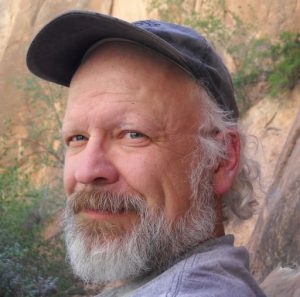
James McLachlan is professor of philosophy and religion at Western Carolina University. He is past co-chair of the Mormon Studies Group at the American Academy of Religion, and organizer of the Personalist Seminar. He has assisted as co-chair Levinas Philosophy Summer Seminars, in Vilnius, Buffalo, Berkeley, and Rome and is co-director of the NEH Summer Seminar on Levinas at the University at Buffalo summer 2017. His recent publications have dealt with concepts of Hell in existentialism, Satan and demonic evil in Boehme, Schelling, and Dostoevsky, and the problem of Evil in Mormonism. He is currently working on a study of Levinas and the existentialists.
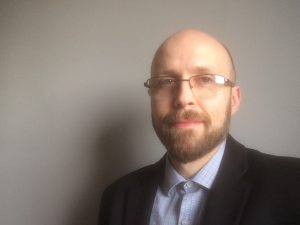
Kevin Taylor received his Ph.D. in philosophy at Southern Illinois University Carbondale in 2018, specializing in Asian philosophy. He is currently an Instructor and Online Coordinator at the Department of Philosophy, University of Memphis where he teaches Asian Philosophy, Philosophy of Religion, Data Ethics, and Applied Ethics. His research interests include East Asian Philosophy, Environmental Ethics, and Diversifying Data Ethics.
“Creativity, Pragmatism, and Logic” Monday, March 18, 2019 1-9 PM

The Foundation for the Philosophy of Creativity and the AIPCT are pleased to announce their first (annual) Spring Conference on Creativity. This year’s topic is “Creativity, Pragmatism, and Logic.” The conference runs from 1:00 to 5:00 PM, March 18, 2019. There will be a keynote lecture from 7:00 to 8:30, and pizza will be served in between. Soft drinks and box wine will be available, but attendees are encouraged to bring whatever they prefer to drink. All events are free and open to the public, but your financial support of the AIPCT is always appreciated.
The mission of the FPC Spring Conferences is to promote and advance original and scholarly work in the philosophy of creativity. These programs replace the annual sessions at APA Central and are sponsored by the Central Division Society for the Philosophy of Creativity, now to be known as the Central Society for the Philosophy of Creativity.
The conference schedule is:
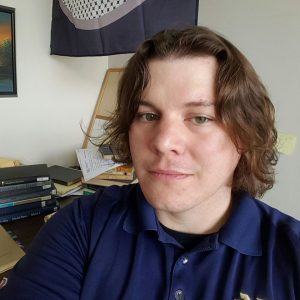
1:00-1:50 “On the New and the Novel: Creative Logics in Time,” Matthew Z. Donnelly, John A. Logan College. Facilitator: Dave Beisecker, University of Nevada, Las Vegas. The lecture is here.
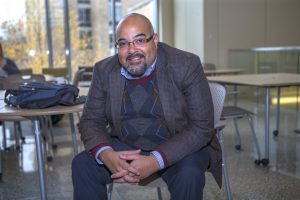
2:00-2:50 “Seeing Without Being Seen: A Look at Pragmatic Afro-Logic Behind the Veil,” Myron Jackson, Xavier University (Cincinnati). Facilitator: Randall Auxier, Southern Illinois University Carbondale. The lecture is here.
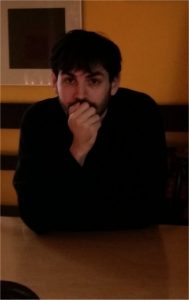
3:00-3:50 “The Metaphysical Grounding of Logical Operations,” Paul Benjamin Cherlin, Minneapolis College. Facilitator: Nicholas Guardiano, Southern Illinois University Carbondale. The lecture is here.
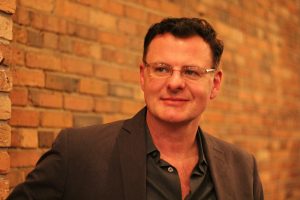
4:00-4:50 “Abduction and the Logic of Scientific Creativity,” John Shook, Bowie State University and Georgetown University. Facilitator: Jared Kemling: Rend Lake College. The lecture is here.

7:00-8:30 KEYNOTE ADDRESS: “Logic, Language, and the Pragmatic Maxim,” Dave Beisecker, University of Nevada, Las Vegas. Facilitator: Larry Hickman. The lecture is here.



